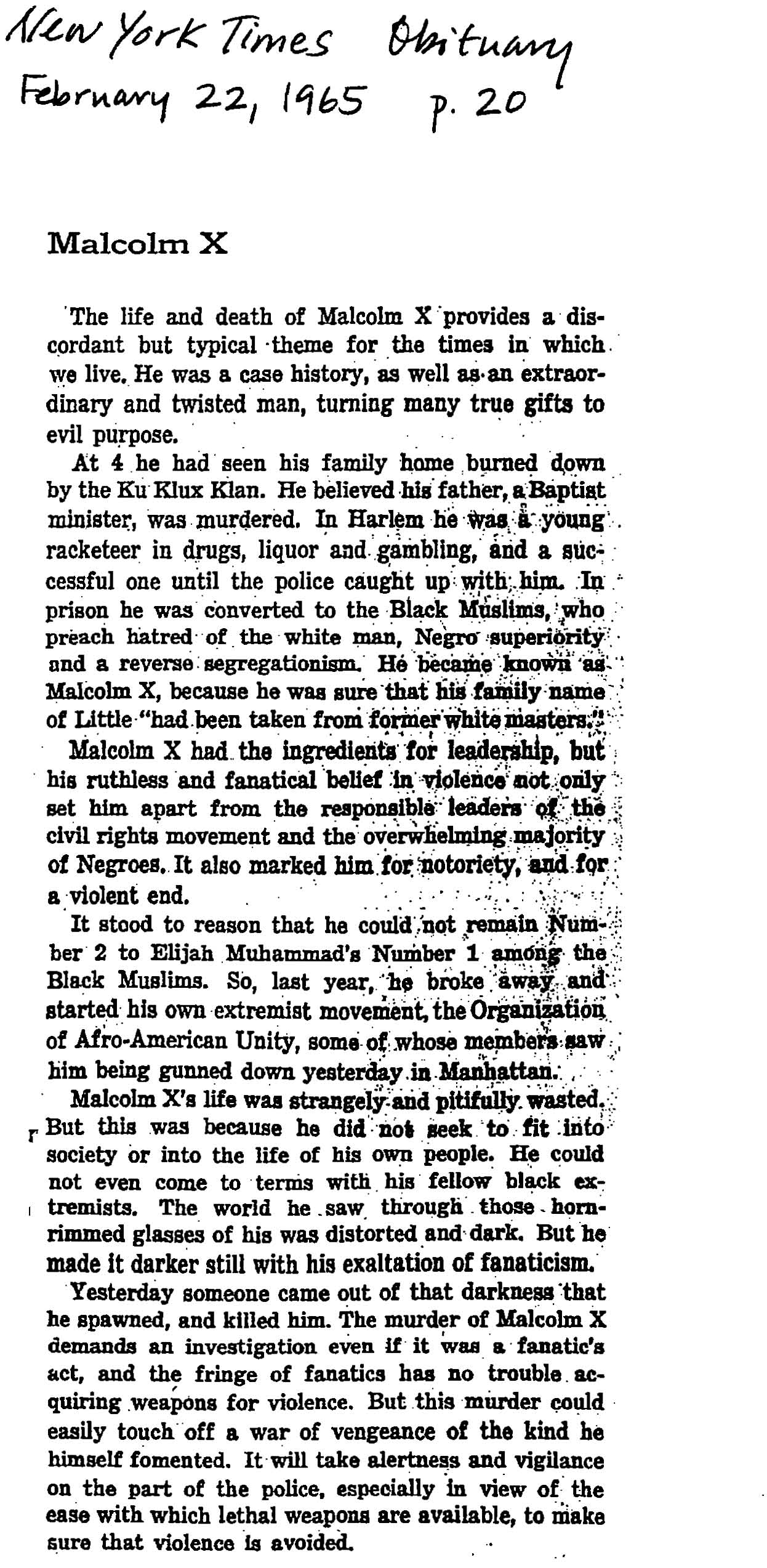EDITORIAL
February 22, 1095
p. 20
Malcolm X
The life and death of Malcolm X provides a discordant but typical theme for the times in which we live. He was a case history, as well as an extraordinary and twisted man, turning many true gifts to evil purpose.
At 4 he had seen his family home burned down by the Ku Klux Klan. He believed his father, a Baptist minister, was murdered. In Harlem he was a young racketeer in drugs, liquor and gambling, and a successful one until the police caught up with him. In prison he was converted to the Black Muslims, who preach hatred of the white man, Negro superiority and a reverse segregationism. He became known as Malcolm X, because eh was sure that his family name of Little "had been taken from former white masters."
Malcolm X had the ingredients for leadership, but his ruthless and fanatical belief in violence not only set him apart from the responsible leaders of the civil rights movement and the overwhelming msajority of Negroes. It also marked him for notoriety, and for a violent end.
It stood to reason that he could not remain Number 2 to Elijah Muhammad's Number 1 among the Black Muslims. So, last year, he broke away and started his own extremist movement, the Organization of Afro-American Unity, some of whose members saw him being gunned down yesterday in Manhattan.
Malcolm X's life was strangely and pitifully wasted. But this was because he did not seek to fit into society or into the life of his own people. He could not even come to terms with his fellow black extremists. The world he saw through those horn-rimmed glasses of his was distorted and dark. But he made it darker still with his exaltation of fanaticism.
Yesterday someone cam out of the darkness that he spawned, and killed him. The murder of Malcolm X demands an investigation even if it was a fanatic's act, and the fringe of fanatics has no trouble acquiring weapons for violence. But this murder could easily touch off a war of vengeance of the kind he himself fomented. It will take alertness and vigilance on the part of the police, especially in view of the ease with which lethal weapons are available, to make sure that violence is avoided.
source:
http://www.columbia.edu/cu/ccbh/mxp/images/sourcebook_img_178.jpg
